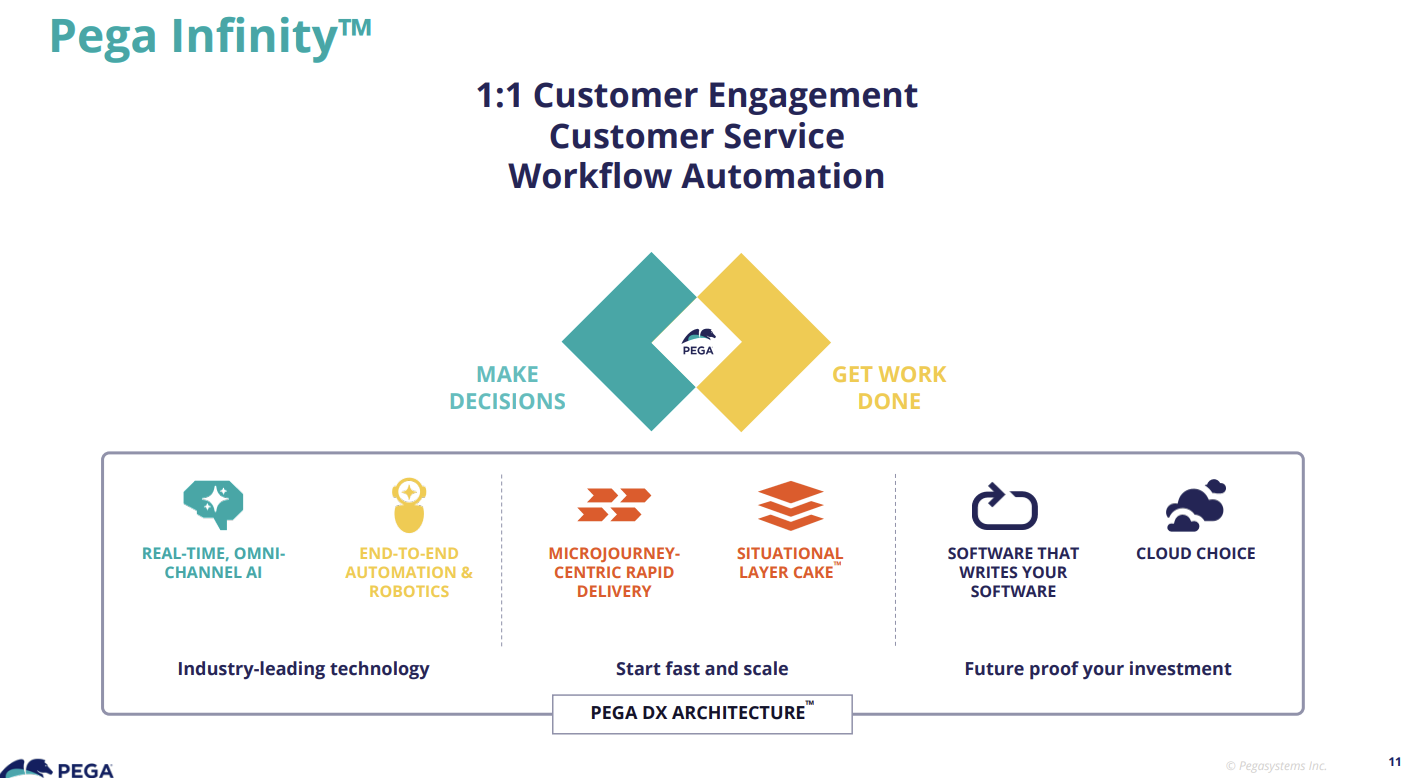Pegasystems launches Pega Agentic Process Fabric, rides AI momentum
Pegasystems launched Pega Agentic Process Fabric, a service that aims to orchestrate AI agents and make them more reliable with process knowledge.
The launch, outlined at PegaWorld, builds on Pegasystems strategy to combine agentic AI and its core workflow and process platform. For instance Page Agentic Process Fabric is an extension of the Pega Process Fabric, which enables agents, apps, systems and data to coordinate.
Pegasystems applications are designed for everything from business process management to customer engagement and digital process automation. Those areas all intersect with what AI agents will do and have led to strong demand for Pegasystems' Pega GenAI Blueprint. Pegasystems' growth has surged as enterprises look to leverage AI tools without additional risk on a platform that's known well.
- Constellation ShortListâ„¢ B2C Marketing Automation for the Enterprise
- Constellation ShortListâ„¢ Enterprise Low-Code Tools and Platforms
- CR CX Convos: LIVE from PegaWorld with Matt Healy
- CR CX Convos: LIVE from PegaWorld with Matt Camuso
Speaking on Pegasystems first quarter earnings call, CEO Alan Trefler said Pega GenAI Blueprint has been in "pretty much every client conversation we have." He noted that Blueprint serves as an AI agent that uses Pega's best practices and melds it with customer data and workflows to build applications.
He added:
"Enterprises want the promise and power of automation that agents could offer, but we don't think they want thousands of agents running unchecked, producing unreliable, undesirable results. They need an agent to wherever possible follow a consistent process with full transparency on how it does work out. And this is where our unique approach is, combining the power of language model-driven agents with the predictability of workflows."
Trefler noted that PegaWorld has more than 200 live demos of its agentic AI meets process automation approach. The company's headline products are Pega Infinity, Pegasystems' suite, and Pega Blueprint, which use generative AI and best practices to create application workflows and automation.
Pega Agentic Process Fabric features the following:
- The ability to analyze its library of discoverable agents, workflows and data across systems to find AI agent is best suited for the task.
- Workflow tools that extend Pegasystems Pega Predictable AI Agents to combine workflows and AI reasoning. When Pega Agentic Process Fabric invokes a workflow, Pega Predictable AI Agents interact with users on guided compliant workflows.
- Support for Model Context Protocol (MCP) and Agent-to-Agent (A2A).
- Security controls to prevent misuse.
Pega Agentic Process Fabric will be available in the third quarter as part of its Pega Infinity suite. The company said several parts of Fabric are available now.
Here's a look at Pega Infinity.

Pegasystems delivered strong revenue growth in the fourth quarter due to is Pega GenAI applications. The company reported first quarter net income of $85.42 million on revenue of $475.63 million, up 44% from a year ago. Non-GAAP earnings of $1.53 a share were well ahead of expectations.
Constellation Research analyst Liz Miller said:
"While the market has been talking about Agentic AI and overloading buyers with a laundry list of AI agents, bots and orchestrators, Pega has been focused on the underlying processes and workflows that have long been their bread and butter. Their approach to AI has been rooted in predictability and responsibility, and this new step forward with agentic AI capabilities is no different. "
The company also announced the following at PegaWorld.
- Pega Infinity App Studio gets agentic AI tools for developers to speed up design, integration, user experience and testing. Pegasystems added an enhanced AI developer agent, integrations between Pega applications and third party systems and a new design agent for robotic process automation. Pega Infinity App Studio leverages Pega Blueprint, an AI-driven workflow designer.
- AI agents in Pega Blueprint can ingest, analyze and convert legacy system assets to aid modernization efforts. AI agents on Pega Blueprint will also deliver process insights on legacy systems and analyze and generate information needed to build a data model that can help move apps to the cloud.
- Systems integrators will be able to use Pega Blueprints to integrate their own intellectual property with the Pegasystems knowledge base.

